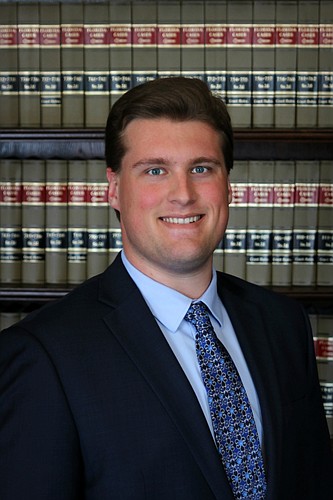
Psychologist Abraham Maslow once stated that if the only tool you have is a hammer, it is tempting to treat all your problems like nails. Social programs have become a policy hammer for one-tool activists who oppose Mayor Lenny Curry’s balanced vision to reduce violent crime.
Curry proposed funding for the Jacksonville Sheriff’s Office to hire 100 more officers for patrol duty. The mayor also advised increasing financial support for programs that provide at-risk teens with after-school activities.
Opponents argue Jacksonville should direct all the funds to social programs by forcing JSO down to zero-growth budgeting for patrol officers.
The data confirms their proposition is unwise. First, it overestimates the efficacy of social programs. Second, it dismisses the value of policing.
Scientifically rigorous multisite experimental evaluations have found a consistent pattern of failure in federal benefits programs geared to tackle low academic achievement, poverty and relationship issues in populations at-risk for criminal activity.
By contrast, a landmark study from the National Center for Juvenile Justice found incarceration combined with targeted institutional care and school- or community-based aftercare significantly reduces the chance of subsequent arrest for youthful offenders.
Curry has it right. Consequences and care are vital tools to fix Jacksonville’s crime problem, especially among young people. It’s equally important that we make sure the Bold New City has a proper team in place to get the job done.
Research analyzed by the National Institute of Justice confirms that police successfully deter crime when they strengthen a criminal’s belief in the certainty of being caught. The best means to achieve this goal are through “hot-spot” and “problem-oriented” policing.
Hot-spot policing prioritizes manpower to zones with the most reported crime and creates a high chance of offender capture in those zones. It was pioneered in the mid-2000s when Minneapolis and Seattle concluded that about 50 addresses in their cities were responsible for up to half of emergency calls. Tests on the effect of doubling police patrols in their hot-spot areas yielded a 13 percent drop in citywide emergency calls.
Problem-oriented policing was developed in Boston as Operation Ceasefire, a police initiative to crack down on intergang gun violence. In contrast to the geographic approach of hot-spot policing, problem-oriented policing takes an identity approach to ensuring the certainty of consequences.
Problem-oriented policing first identifies known gang members and offenders who exhibit an escalating pattern of violence. Next, it calls for thorough police work and targeted prosecution of those individuals. The strategy aims to cull the about 5 percent of defendants, who commit 50 percent of crimes in the U.S., for long-term incarceration.
While community workers are a valued asset, Jacksonville needs a robust police force on its team to control violent crime.
I encourage readers to appreciate the value of 100 new officers tasked with neutralizing the threat of violent offenders and to support Curry’s proposal.
Connor Larkin is an assistant state attorney in Duval County. All opinions expressed herein are strictly personal. Citations available upon request.